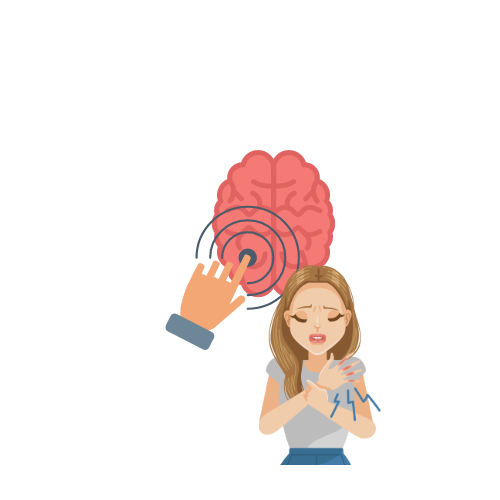Tips to Beat Procrastination: A Neurodivergent-Affirming Guide for ADHD Women
Procrastination, especially for women with ADHD, isn’t about laziness or inefficiency—it’s a complex issue tied to unique challenges in managing time, focusing, and staying organized. Understanding why procrastination happens and applying compassionate strategies are essential for overcoming it. This guide provides neurodivergent-affirming tips to beat procrastination, tailored for ADHD women.

Understanding Task Avoidance in ADHD Women
Before diving into tips to beat procrastination, it’s important to understand the reasons behind task avoidance. Task avoidance in ADHD is often tied to emotional and cognitive patterns that can make starting and finishing tasks overwhelming. Here’s a breakdown of common reasons and solutions to help you tackle procrastination:
1. The Tasks Are Boring
-
- Tasks that don’t engage your interest, like paying bills or doing laundry, can be difficult for ADHD brains that thrive on stimulation and novelty.
- Solution: Add Stimulation
Make boring tasks more engaging by adding something fun—listen to music, set a timer, or reward yourself after completing small steps. This can help make mundane tasks feel less daunting.
2. You Are Overwhelmed
-
- Tasks that feel too large or tangled can lead to paralysis, especially if you feel the need to do everything perfectly.
- Solution: Break It Down
Divide tasks into smaller, more manageable pieces. Focus on completing just one small step at a time to ease the feeling of overwhelm and build momentum.
3. Your Mood Is Impacting Your Ability to Do It
-
- If you’re feeling anxious, depressed, or emotionally drained, starting a task can feel impossible. ADHD often coexists with mood disorders, adding another layer of difficulty.
- Solution: Check-In with Your Emotions
Acknowledge how your emotions might be affecting your ability to focus. Use small mood boosters, such as listening to a favorite song or taking a short walk, to lift your spirits before tackling the task.
4. Things Have to Be "Just Right"
-
- Many ADHD women feel like they can only start tasks when the environment, time, or their mindset is perfect.
- Solution: Lower the Bar
Instead of waiting for ideal conditions, remind yourself that tasks don’t need to be perfect to begin. Aim for “good enough” and focus on progress over perfection.
5. You Don’t Know How Long It Will Take
-
- The uncertainty of how long a task will take can be paralyzing. When unsure whether it will take five minutes or five hours, it’s easier to procrastinate.
- Solution: Set a Timer
Estimate the time and set a timer for a small chunk, like 10 or 15 minutes. Once the timer goes off, reassess. Often, starting is the hardest part, and once you're going, you’ll want to continue.
6. It's Emotionally Overwhelming
-
- Some tasks come with emotional weight—whether it’s paying off debt or responding to an important email, the emotional burden can feel insurmountable.
- Solution: Break the Emotional Barrier
Recognize the emotions tied to the task and allow yourself to feel them. Focus on one small action to begin; sometimes starting is enough to ease the emotional overwhelm.
7. You Feel Confused or Need More Information
-
- When you’re unsure about a task or need more information, you might avoid it because asking for help feels vulnerable.
- Solution: Ask for Clarification
Don’t be afraid to ask for help. Seeking clarification doesn’t make you incompetent—it shows resourcefulness. Getting the information you need allows you to move forward confidently.
8. Perfectionism
-
- If you believe that your work must be flawless, you may delay starting it out of fear that it won’t be perfect.
- Solution: Embrace “Good Enough”
Challenge perfectionist tendencies by asking, “What does ‘good enough’ look like?” Focus on completing the task rather than aiming for perfection. Progress is more important than perfection.
9. Self-Accommodation: Making Tasks ADHD-Friendly
-
- Tasks can feel overwhelming if they aren’t structured to fit your needs.
- Solution: Customize Your Environment
Make tasks more manageable by creating systems that suit your ADHD. For work, block off quiet time. For chores, delegate or break them into manageable steps. Adjusting your environment makes tasks easier to complete.
10. Self-Advocacy: Setting Boundaries Around Your Time
-
- Procrastination can stem from saying “yes” to things that don’t align with your priorities or values, leaving you overcommitted.
- Solution: Prioritize and Set Boundaries
Practice self-advocacy by setting healthy boundaries. Say no to tasks that don’t align with your goals and delegate or prioritize your time for tasks that matter. This reduces the feeling of overwhelm.
11. Self-Care: Protecting Your Emotional and Cognitive Energy
-
- If you're feeling burnt out or exhausted, procrastination may be a sign that your brain and body need a break.
- Solution: Prioritize Rest and Recharge
Make sure you’re caring for your basic needs—sleep, nutrition, and downtime. When you’re rested and emotionally regulated, it’s easier to focus and take on tasks without feeling drained.
12. Self-Compassion: Coaching Yourself Through Discouragement
-
- Negative self-talk can make procrastination worse. If you're labeling yourself as lazy or incapable, it becomes even harder to take action.
- Solution: Practice Kind Self-Talk
Be your own coach, not your own critic. Instead of focusing on what you haven't done, ask yourself, "What’s the smallest step I can take right now?" Offer yourself gentle encouragement and compassion, and remember that every small step is progress.
By understanding the root causes of procrastination and using these ADHD-friendly tips to beat procrastination, you can tackle tasks with greater ease and confidence. Procrastination doesn’t define you—it’s just a detour that you can navigate with the right tools.
Other pages
Other resources




